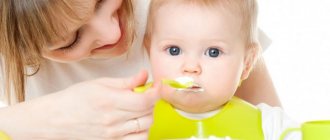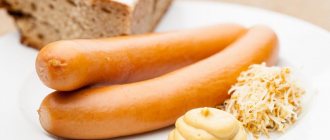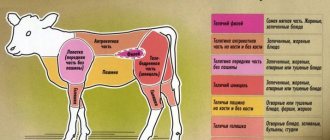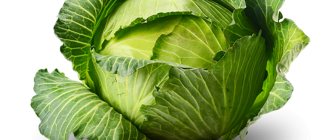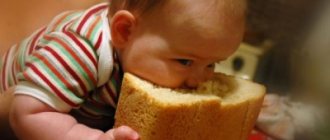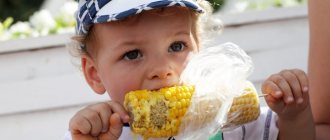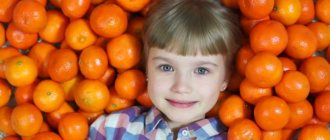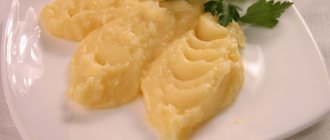According to the rules for preparing a diet for infants, boiled vegetables can be given to children who are six months old. But I wonder at what age you can give your child beets. After all, the vegetable is famous for the presence of beneficial vitamins, but it can be harmful for the child’s body. Therefore, boiled beets should be present on the children's menu, but a little later.
Benefits of beets
The vegetable contains many useful substances, macro- and microelements, as well as vitamins. It contains:
- pectin;
- iron;
- magnesium;
- potassium;
- iodine;
- betaine.
It is useful for young children to improve the functioning of the gastrointestinal tract. If a child experiences frequent constipation, introducing beets into the diet improves intestinal function. Boiled vegetables are given to overweight infants.
Beneficial properties of beets for children:
- antioxidant agent;
- improves the functioning of the nervous system;
- hepatoprotector.
Due to its immunomodulatory properties, the product is useful in restoring the body after acute infections. Eating dishes based on it helps strengthen the walls of blood vessels and improves the functioning of the hematopoietic organs.
The child should be given vegetables in small quantities once a day, twice a week.
Pediatricians advise introducing beets not separately, but with other dishes. It is best combined with cereals (buckwheat, rice, oatmeal). For the first time, such a dish is made using the water in which the vegetable was boiled; later the product is added to the porridge.
The amount of cooked vegetable for consumption depends on the age of the child:
- a newborn child up to 7 months - no dishes made from root vegetables;
- from 8 months to a year – 50 g of product;
- after a year - up to 100 g.
In a dish for a child under one year old, the product should not exceed ¼ part. For older children, the product ratio is increased to ⅓.
How is it useful?
Among the positive properties of beets are the following:
- strengthens stool, increases appetite and has a beneficial effect on the intestines;
- eating beets reduces the likelihood of developing cardiovascular diseases;
- the vegetable contains useful vitamins A, C, E, K, as well as magnesium, potassium, folic acid and calcium;
- betaine contained in beets has a beneficial effect on the liver;
- due to the high concentration of iron, eating beets produces red blood cells, which is important for brain development;
- The root vegetable helps with constipation.
- Accumulates nitrates and can cause poisoning.
- Causes allergies.
- Excessive consumption leads to stool upset.
For children over one year old, prepare:
- beetroots;
- borscht;
- vegetable stew;
- casseroles;
- salads;
- beet pancakes.
In this case, the consumption of vegetables should be controlled. Children under three years old should not eat more than 50 grams of beets per day.
Do not forget that beets are a highly allergenic product. If suddenly, after eating it, the child’s skin turns red, loose stools appear, swelling and tearing occur, immediately exclude the vegetable from the diet. After a few months, try going back to the burgundy root vegetable again.
- When consumed regularly, beets will help strengthen the vascular wall and normalize the functioning of the hematopoietic system.
- Improves digestion, prevents constipation.
- The high content of various vitamins helps improve intelligence and general physical development.
- The high content of iodine and iron helps prevent diseases of the thyroid gland and blood.
- Beets have an immunomodulatory and antioxidant effect.
- This root vegetable is a powerful hepatoprotector that improves the functioning of the biliary system.
- Contains betaine. Thanks to him, beets have such a rich red hue.
- Beetroot dishes are great for children with nervous excitability.
Recipes for children's dishes made from beets
When preparing beet salad for children, do not forget to imagine and experiment.
Create beautiful compositions so that your baby will be interested in trying them.
Apple salad
Ingredients:
- cooked and peeled beets - 50 g;
- green apple - 0.5 pcs.;
- fresh carrots, peeled - 0.5 pcs.;
- vegetable oil - 1 tsp.
Cooking method:
- Grate fresh apple, carrots and boiled beets on a fine grater.
- Top with oil if desired.
- A tasty and healthy salad is ready.
For children over 11 months old, this salad is served seasoned with sour cream with a fat content of 15-20%. It turns out tasty and satisfying.
Salad with prunes
You can treat your baby to this dish when he turns one and a half years old.
Recipe:
- beets - 150 g;
- prunes or raisins - 40 g;
- walnuts or other nuts - 40 g;
- vegetable oil - 1 tsp.
How to cook:
- Soak dried fruits in hot water for 40-50 minutes until they become soft.
- Mix nuts and prunes and grind in a blender. If your child already has enough teeth to chew, the ingredients can be finely chopped.
- Grate the beets on a fine grater.
- Mix all ingredients and season the salad with vegetable oil.
If there are no problems with allergies, you can add a small spoon of honey. And if you decorate the salad in the form of a funny face, then you won’t have to persuade the little picky eater to eat it.
Beet cutlets
To prepare, take:
- homemade minced meat - 200 g;
- beets - 100 g;
- potatoes - 1 pc.;
- egg - 1 pc.;
- salt - a pinch;
- sunflower oil for greasing the pan.
Step-by-step algorithm:
- Peel the vegetables, rinse and chop on a grater or using a blender.
- Combine the prepared mixture with minced meat and egg. Add salt as desired.
- Having formed the cutlets, fry them in a hot frying pan until golden brown on both sides.
- Serve with sour cream.
This dish will delight little gourmets aged 4-5 years. It is extremely healthy, as meat goes well with vegetables.
Is it possible to give vegetables to babies?
You should give your baby beets gradually and after the baby has tried other equally healthy vegetables. When can you give your child beets? Doctors recommend not giving this vegetable until the baby is six months old.
From what month can a child be given beets if he is allergic? In this case, pediatricians advise introducing beets into the baby’s diet after one and a half or two years.
Since there is no urgent need for early introduction of red vegetables into the baby’s diet, it is better to postpone this moment until the baby is six months old. If the baby suffers from constipation from the early months of life, after three months you can give him beetroot juice. This remedy is a safe medicine that effectively helps fight digestive problems.
Beetroot juice must be obtained from a well-cooked vegetable. To prevent an allergic reaction, a few drops of juice can be added to water or milk. Beetroot puree should be introduced into your baby's complementary foods no earlier than six months. And if the baby does not suffer from constipation, beets can be offered to the child for the first time after one and a half years.
Complementary foods should be introduced gradually. You need to add a teaspoon of beetroot puree to the boiled vegetables that the baby has already eaten. Gradually the rate increases. After one and a half years, a child can sometimes eat beet salad with the addition of olive or sunflower oil. It is also not recommended to give borscht to a baby until he reaches the age of one and a half years.
A small amount of beets can be added to salads or soups. Children love cutlets, and if they are made from a healthy vegetable, they will eat them with pleasure. To prepare beet cutlets, boil one small beet. Grind the prepared beets and one small onion in a blender. Add 1 chicken or 2 quail eggs, 1 tablespoon of flour and a pinch of salt. Mix everything thoroughly and form small cutlets. You can steam them or bake them in the oven.
Beets are healthy due to their rich composition, so they can be included in the diet of infants.
It is worth knowing in what forms it is best to serve the vegetable. It is necessary to adhere to the rules for choosing and preparing dishes with beets.
It is not allowed to introduce the product first into complementary foods, because it can provoke an allergy.
After introducing the baby to other vegetables (zucchini, carrots, potatoes, pumpkin), a beetroot supplement is introduced. For the first time, it is recommended to give beet puree.
Experts recommend introducing the product into a child’s diet only after starting complementary feeding with other vegetables.
We suggest you read: Is it possible to freeze zucchini?
In case of diathesis, the vegetable is introduced into the diet from 1 year. You can prepare various dishes for a one-year-old child with the addition of the product - borscht, salad, stew.
Beetroot juice can only be given after a year only in diluted form.
Rules for introducing first complementary foods:
- Gradual increase in portions.
- The dish must be freshly prepared.
- It is recommended to cut off the top part.
- Give beets in the morning.
After the first feeding, it is necessary to monitor the baby’s reaction for 2 days. In the absence of side effects, the product is continued to be given, increasing the portion to 50 g per day.
Boiled vegetables begin to be given at 8 months. The first portion is 1/4 tsp. puree. If there is no adverse reaction, then after 2 days the baby can take 0.5 tsp.
Up to a year, the amount of product in the form of puree is increased to 100 g.
It is best to add beets to other dishes (porridge or vegetable purees).
For the first time, the baby is given boiled beets. It is recommended to add it to porridge or mix it with mashed cauliflower, zucchini, and potatoes.
Raw beets are not recommended in baby food because the fresh vegetable may contain harmful substances.
To prepare boiled beets, a small or medium-sized root vegetable is boiled for an hour and a half. It must first be peeled. The finished vegetable becomes soft and can be easily pierced with a knife or fork.
There are many beet-based dishes that can be given to a child in the first year of life.
Puree can be prepared in two ways
Beetroot juice contains beneficial components. But raw vegetables may contain nitrates.
Beetroot juice has the following properties:
- diuretic;
- vasodilator;
- lowering pressure.
The drink is not advisable for people with stomach pathologies, hypotension, renal failure, and with caution in case of diabetes.
From 9 months, the baby is given a few drops of juice diluted with water. If there are no deviations, the dosage is increased.
You can mix the juices of other vegetables and fruits (apple, pumpkin, carrots). There should be no more than 30% beetroot in such a drink. A one-year-old child is given about 5 tsp. such a mix.
The World Health Organization allows a baby to be introduced to beets in microscopic doses as early as six months of age during breastfeeding. However, it is better to give your baby food from burgundy vegetables on a regular basis in small portions from 8 or 10 months. If your baby is predisposed to allergies, it is best to delay introducing beets until 12 months.
After eating beets, your baby's urine may suddenly turn red. However, parents need not be alarmed. The usual color of urine will return after the child stops eating beets.
Unlike boiled vegetables, raw vegetables are much richer in vitamins and microelements. However, children under one year old can only try beets boiled, baked or steamed. Raw root vegetables often cause allergies and irritate the intestines.
Boiled vegetables are considered healthier because during cooking they lose some of the fruit acids that can harm a child’s stomach. In addition, a certain amount of nitrates during cooking goes into beet broth, which is not used for food. But the beneficial elements are preserved in boiled beets. These include:
- pectin;
- magnesium;
- potassium;
- iron and others.
Introducing a child to beets early (before 8-9 months) can lead to health problems.
- Along with tomatoes, carrots and celery, beets sometimes cause allergies with possible complications.
- Negative consequences may include diarrhea, dehydration and poisoning (due to nitrate content).
- Excessive consumption of beets leads to a decrease in blood pressure, which is already slightly lower in children than in adults.
- After tasting beets, some babies experience bloating and intestinal colic.
How to choose?
The safest and healthiest root vegetable will be the one collected in your own garden. If you don't have a garden plot, buy vegetables grown in your region.
Choose small root vegetables. They should be solid, without dents or scratches. If you see white fibrous streaks on a vegetable, this means that it contains an increased amount of nitrates.
Preparation
For children, prepare dishes from boiled beets. For this vegetables you need:
- Wash, peel and cut off the top part where the tops grew.
- You can cook the beets either whole or by cutting them into pieces.
- Wait ten minutes from the moment it boils and drain the water, and then add new water. The beets are cooked for about an hour until they are ready.
- Then remove the cooked vegetable from the pan so that the nitrates remaining in the water do not transfer into the root vegetable.
If you plan to feed your babies raw beets, then leave the vegetable to soak in water before eating to reduce the concentration of nitrates.
Why should beets be included in a child’s diet?
- Unfortunately, beets are one of the vegetables that can provoke allergies in a baby. Many consider this quality unacceptable to introduce root vegetables into complementary foods for a child. But that's not true.
- Beets have the most valuable beneficial substances, so you should not refuse to use them if the vegetable does not affect the child’s health in the form of allergic manifestations.
- Beet roots are a natural storehouse of essential vitamins, minerals, and biologically active substances for the maintenance and functioning of all organs of a growing body. It’s not for nothing that beets are called domestic “ginseng.”
Beetroot is a source of minerals and vitamins for a growing body.
What does beetroot contain?
- Vitamins: A, C, B have a beneficial effect on the immune system, strengthen the child’s vision and nervous system.
- Potassium and sodium affect electrolyte balance, excretory and cardiovascular systems.
- Iron is necessary for hematopoiesis and maintaining normal hemoglobin levels.
- Calcium is involved in the formation of bone tissue in a growing child.
- Magnesium regulates the baby’s nervous processes and behavior.
- Fiber normalizes intestinal motility and is a sorbent for removing toxic substances.
- Betaine is a necessary reagent for normal liver function, normalizing fat metabolism in the body.
We suggest you read: Is it possible to transplant a chrysanthemum into a pot in the fall?
The benefits of beets for babies
- Beets are well absorbed by the child's body.
- The vegetable regulates metabolic processes and promotes the breakdown of fats. The root vegetable is especially useful for overweight children.
- Beetroot dishes have a good effect on the gastrointestinal tract of a child, especially those suffering from constipation.
Beetroot dishes are good for kids.
Why are beets dangerous for small children?
Large amounts of fiber can irritate your baby's delicate gastrointestinal tract. This is especially true for children with vulnerable digestive tracts. They experience attacks of intestinal colic, pain and bloating when eating certain vegetables and fruits.
Beetroot is a Class III allergenic vegetable. In addition to beets, this list includes: celery, carrots, tomatoes. These vegetables can cause various allergies with many complications. To prevent this, beets and other allergenic vegetables should be introduced into the child’s diet carefully, starting with small portions.
How to properly introduce beets into complementary foods?
New foods are not always to the baby’s taste.
- It is better to introduce beets into complementary foods for a child at the age of 8-9 months, and in children prone to allergies - after a year. At this time, the toddler’s digestive system is finally formed and it is easier for him to cope with “adult” food.
- You should not introduce several new foods to your child’s food at the same time. If an allergic reaction occurs, it will be difficult to determine which product caused the reaction.
- The first time beets are given to the baby in the form of a puree, prepared together with other, already proven vegetables (zucchini, carrots, cabbage, pumpkin). The amount of root vegetables in such an assorted puree should not exceed 1/3 of all vegetables.
- Initially, the puree is given in the amount of 1-2 teaspoons. You should carefully monitor the baby's reaction, paying attention to his behavior (the appearance of a desire to scratch) and the condition of his skin on the body and face (rashes in the form of red spots).
- It is better to give beet juice to a child aged 1.5 years. The first time the juice is offered in the amount of a few drops, mixing it with water or other proven juices.
Children can receive beet juice from 1.5 years old
- beets contain nitrogenous compounds, which, passing through the kidneys, can disrupt their function. Therefore, you should not get carried away with beets every day;
- high allergenicity of the product;
- lowers blood pressure (negative effect on low blood pressure).
Should you give your baby beet juice?
- beets contain nitrogenous compounds, which, passing through the kidneys, can disrupt their function. Therefore, you should not get carried away with beets every day;
- high allergenicity of the product;
- lowers blood pressure (negative effect on low blood pressure).
Boiled root vegetables provide more benefits than raw beet juice. During heat treatment, nitrates are destroyed. This way beets are better absorbed in a small body.
This type of juice should not be given if the child has:
- diabetes;
- tendency to loose stools;
- kidney diseases;
- gastritis with high acidity.
The permitted age for beet juice is 12 months.
Be sure to dilute it with water or other juices. This is due to the fact that beets irritate the mucous membranes of the stomach and intestines.
Beets turn urine pink and stool burgundy. Don't be alarmed if you see these changes in the pot.
Dr. Komarovsky E.O.: “Of course, beets are important in the life of both adults and children. Contains a lot of microelements and vitamins that are beneficial to all organs and systems. Beets also have a pleasant sweet taste, and children are known to love sweets. Buy beets in trusted stores, or better yet, grow them yourself.”
Beetroot is a very popular vegetable in our latitudes: it is unpretentious, stores well, is inexpensive, has a pleasant taste and a lot of useful properties.
Beets, along with potatoes, carrots and cabbage, are one of the main vegetables on the menu for adults; they are present as the main ingredient in a wide variety of dishes (entrées, side dishes, salads, appetizers, even baked goods, drinks and desserts).
But how suitable are beets for baby food and when can they be included in a baby’s diet?
In modern medicine, this vegetable is used as a diet and is even included in several drugs.
In this article you will learn about the benefits of beets for men, women and children. In addition, it is discussed here whether there is a difference in the benefits of boiled and raw vegetables.
The red root vegetable contains a lot of fiber, having a pronounced laxative effect. Its use quickly relieves constipation. Beet pulp and juice contain organic acids, iron, potassium, magnesium, iodine, B vitamins, and ascorbic acid. This vegetable stimulates the liver and protects it from the effects of toxins.
Beets normalize the functions of the endocrine system, maintain high levels of hemoglobin, strengthen vascular walls and improve immunity, bind dangerous metabolites and remove them from the body.
The root vegetable contains several times more sugar than other vegetables. For this reason, it should not be eaten if you have carbohydrate metabolism disorders or diabetes. Beets are contraindicated for children suffering from frequent stool disorders, inflammatory diseases of the stomach, intestines and kidneys.
We invite you to familiarize yourself with Divorce with children in 2021: how to get a divorce correctly if you have minor children
Intolerance to this fruit is rare. But children prone to food allergies are likely to have a negative reaction. Possible manifestations: red spots on the skin, rash, lacrimation, swelling of the mucous membranes, colic. Signs may appear within 2–24 hours after consumption.
Why are there restrictions on the consumption of root vegetables?
Beetroot puree
Preparation
Preparation
Borsch for children
Preparation
Despite the mass of useful substances that the vegetable contains, it should not be introduced into complementary foods too early. Here are some reasons:
- beets can cause allergies in children;
- the root vegetable contains a large amount of nitrates, which the child’s body is not yet ready to cope with;
- early introduction of beets causes loose stools.
Preparation
Benefits of beets for children
For children, the following beneficial qualities of beets are of greatest importance:
- High content of dietary fiber - insoluble (coarse fiber) and pectin. Dietary fiber stimulates intestinal peristalsis (contractions), promotes the growth of beneficial microflora, and therefore prevents constipation and intestinal dysbiosis, and eliminates existing stool retention. Due to the predominance of pectin rather than coarse fiber, eating beets provides a good laxative effect without accompanying flatulence and cramping abdominal pain. An important property of pectin is that it absorbs and removes various toxic substances from the intestines (salts of heavy metals, toxic metabolic products, etc.).
- Beets contain a lot of vitamins (group B, ascorbic acid, vitamin PP), micro- and macroelements (calcium, magnesium, potassium, zinc, iron, iodine, copper). Thanks to them, regular consumption of beets turns out to be useful for anemia, iodine deficiency, and in general has the most favorable effect on a growing child’s body. Moreover, during long-term storage, the vitamins and minerals of beets are not lost; a significant part of them is preserved even after heat treatment. Therefore, beets are excellent for consumption in the winter-autumn period, when seasonal hypovitaminosis is common in children.
- The coloring pigment of beets, betaine, is a biologically active substance involved in the metabolism of proteins and fats and other important processes.
How to make beet puree?
Add gradually, starting with ½ teaspoon.
Always start introducing a new food in the morning to see if there is an allergic reaction.
- The beets should be washed.
- You need to cook it for quite a long time, about 1.5 hours.
- The readiness of the beets is determined with a knife. If the knife goes smoothly to the middle of the beets, they are ready.
- After this, the water must be drained.
- Pass the cooked root vegetable through a blender or meat grinder, then grind through a sieve for homogeneity.
- Beet puree can be stored in the refrigerator for no more than a day. Therefore, there is no need to do too much of it.
Be sure to add ¼ teaspoon of vegetable or olive oil to the beet puree.
It is better to start introducing beets to your child as part of other vegetables - cauliflower, zucchini. Then, when the baby gets used to it, you can give it as a separate dish.
By 10 - 12 months, if the baby has teeth, you can make beet salads with sour cream, vinaigrettes. Beetroot salad for children will perfectly complement lunch with its pleasant taste.
Prepared salad cannot be stored in the refrigerator for more than a day; it loses its beneficial properties.
By the age of one year, a baby can consume up to 50 grams of beets, but not more than 2 times a week. Children over one year old can be given up to 100 grams. In vegetable salads, beets should be present in up to ¼ of the entire dish.
How to give to a child
Young mothers often wonder at what age to add a new vegetable product to their child’s diet.
When to include in the diet
Previously, freshly squeezed juice was introduced into baby's complementary foods from the age of six months. Now pediatricians, including Dr. Komarovsky, have come to the conclusion that this product is too aggressive for the stomach of infants. Therefore, it is recommended to feed dishes made from boiled beets starting from 1 year.
Beetroot juice can be given in combination with apple or carrot juice (in a ratio of 1:10) no earlier than when the baby turns 1 year old.
Rules for entering the menu
General rules for adding healthy root vegetables to your diet:
- The serving volume at the very beginning is 0.5 tsp. in a day.
- To observe the child’s reaction to the supplement throughout the day, at first you need to give beets only in the morning.
- It is necessary to carefully monitor signs of allergies and intolerance to the product. If any appear (loose stools, abdominal pain), then the source of the problem should be temporarily excluded from the diet. You can give the product to your child a second time only after 1-2 months.
- With normal digestibility of the new vegetable by the body, the portion is increased by half a teaspoon. You need to increase it to five teaspoons per day.
- At the initial stage, you can give your baby beets 1-2 times a week.
- When the child is one year old, it is allowed to offer more beet-based dishes. A daily serving of vegetables for a child up to three years of age is 50 g.
- From four to seven years of age, the volume of prepared root vegetables on the menu can be increased to 100 g per day.
Beets are given to children under one year of age only after heat treatment.
Contraindications
Like any new product, beets should be added to an infant's diet carefully. Sometimes the dosage should be less than normal, and in special cases the root vegetable is completely prohibited.
Beets are contraindicated:
- if you are allergic to the product;
- if you have digestive diseases;
- for inflammation of the genitourinary system;
- for kidney pathologies.
Cooking correctly
In order for the root vegetable to be beneficial and not harm the body, it must be prepared correctly:
- Beets are usually boiled in their skins so that the product does not lose its beneficial substances.
- Before cooking, the root vegetable must be washed.
- Mothers are unhappy that cooking takes a long time. Professional chefs have their own secret - after 30 minutes of cooking a vegetable, it must be removed from the stove and placed in a pan in cold water. After 10 minutes you can remove the peel.
- Boiled beets are used in the preparation of many nutritious dishes for children from 8 months.
The beets are cooked for 40 minutes to 1.5 hours. Taking contrasting temperatures will help speed up the process. Immerse the vegetable in ice water for 10 minutes immediately after boiling.
Selection rules
Beets can contain a large amount of nitrates, therefore, the root crop must be chosen correctly:
- The peel should be dark burgundy in color.
- It is better to take fresh beets, small in size. In a large specimen, nitrates are most often contained.
- When cut, there should be no pale veins on the product.
It is best to prepare a vegetable grown in your own garden; if this is not possible, then buy it in trusted stores.
Recipe: Stewed Beet Leaves
If you can’t decide for yourself whether you can eat raw beets, then try drinking them. You need to get used to beet juice gradually. First, it is mixed with other components, an apple or carrots, then the proportions of the components are changed. At first, it is recommended to put the juice in the refrigerator for a couple of hours, and only then drink it.
Is it possible to eat raw beets for those who want to lose weight? And here again the only thing left to do is answer in the affirmative! There is a special two-day beetroot diet, thanks to which you can lose 2-3 extra pounds in just 48 hours. You are allowed to drink an unlimited amount of liquid per day and no more than 2 kilograms of beets, in any form, including raw.
If this regime is too harsh for you, then try simply changing your usual evening meal to
Preparing a dietary dish is quite simple: mix 200 g raw and 200 g
season it with the juice of half a lemon and leave to brew. Additionally, for dinner you can eat low-fat cottage cheese, yogurt or kefir.
Ingredients:
- 600 g beet leaves with stems
- 1-2 onions
- 1 clove of garlic
- 2 tablespoons vegetable oil
- 300 g tomatoes
- salt
- pepper
- 125 ml vegetable broth
- 4 eggs
Let's consider how you can use raw beets for treatment, for cosmetic purposes, and for cooking.
In folk medicine
The red vegetable in question is often used to treat and prevent diseases. Beetroot is a versatile natural herbal product that is suitable for both external and internal use.
Treatment of liver diseases
It is necessary to eat 100-150 g of fresh vegetables on an empty stomach during the day. It is also recommended to mix beet juice, cucumber and carrot juice in a ratio of 1:1:1 and drink half a glass 3 times a day 20 minutes before meals.
Treatment of sore throat
One medium root vegetable needs to be peeled, washed and grated. Mix 200 g of the resulting mass with 10 ml of vinegar and let it brew for several hours. The juice released can be used to rinse your mouth and throat. It is recommended to continue therapy until the symptoms of sore throat disappear completely.
About
Possible side effects
When consuming vegetables with nitrates, symptoms of poisoning begin to develop:
- dizziness;
- vomit;
- nausea.
Sometimes an allergic reaction develops, which is accompanied by swelling, redness of the skin and itching.
After consuming the product, the color of urine and feces has a reddish tint. This is not considered a pathology.
When should you start feeding beets?
It is better for children with diathesis to start eating beets after a year.
The optimal age when a child can start giving beet puree is 7 - 8 months.
We invite you to familiarize yourself with How to change a child’s last name after a divorce: the procedure for changing it in 2021
Beets are one of the last to be introduced among all vegetables. This is due to the fact that it causes allergic reactions more often than others.
Beets contain a lot of fiber and have a laxative effect. This occurs due to increased intestinal motility and accelerated movement of feces.
If the baby is breastfed, then the mother can try the beets herself and watch the baby’s reaction.
4. Protects the liver
Consequences of too early use (before 8, 9 months)
Preparation
There are some restrictions for infants:
- diarrhea;
- tendency to allergic reactions;
- poisoning;
- intestinal colic;
- individual intolerance to the product.
With caution, in moderation and not too often, the product can be used for the following pathological conditions:
- stomach problems;
- hypotension;
- oxaluria;
- kidney diseases.
https://www.youtube.com/watch?v=0gufA4xwIXM
Beetroot is a healthy product for infants. However, before introducing it into the menu, you need to familiarize yourself with the rules of complementary feeding and know the contraindications that can cause negative consequences.
Beneficial properties of beets and beet tops
Raw beets in grated form, their juice removes free radicals, radionuclides, and heavy metal salts from the body, thereby eliminating the risk of cancer. It also contains a special pigment, betacyanin, which is an important barrier to the growth of cancer cells.
- Betaine is a special type of vitamin that improves metabolism, cleanses the blood of toxins and waste, and stimulates the functioning of the kidneys and liver. The substance thins the blood, which is an excellent prevention of hypertension, atherosclerosis, Alzheimer's disease, diseases of the cardiovascular system, and minimizes the risk of developing osteoporosis. The component effectively strengthens vascular walls and activates blood flow up to the capillaries.
- The vegetable helps the digestive tract, regulates stool, cleanses the intestinal walls, gets rid of fecal stones, and stimulates rectal contraction.
- Replenishes the missing amount of iodine, thereby regulating the functioning of the thyroid and parathyroid glands, normalizing hormonal levels and the condition of the genitourinary system.
- Beetroot juice and its pulp have a general strengthening property, which improves immunity. Consequently, the risk of infectious, respiratory and colds is reduced.
The presence of a mass of various vitamins allows you to compensate for their deficiency, so it is useful to consume beets for vitamin deficiency.
- Beetroot substances reduce the level of bad cholesterol, eliminate plaques, which is an excellent prevention of strokes and heart attacks.
- An amazing stimulation of the brain occurs, areas responsible for memory, speech, vision, and thinking are activated.
- The coarse fibers of the vegetable stimulate the production of bile from the gallbladder, which minimizes the risk of stone formation.
- The root vegetable has diuretic and laxative properties, eliminates constipation.
- Potassium and magnesium have a beneficial effect on the human nervous system, improve sleep, relieve anxiety, fear, and groundless worries.
- The vegetable is included in the diet of athletes and people engaged in heavy physical activity, as the components contribute to the growth of human endurance.
- Regular consumption of beets improves the condition of the skin, eliminates fine wrinkles, increases the firmness and elasticity of the skin.
- Beetroot juice, boiled tops or root vegetables have an excellent effect on the condition of nails and hair, making curls shiny and healthy.
Women who have especially developed PMS feel an excellent positive effect from beets. Regular inclusion of boiled or raw fruit in your diet allows you to survive these days unnoticed.
